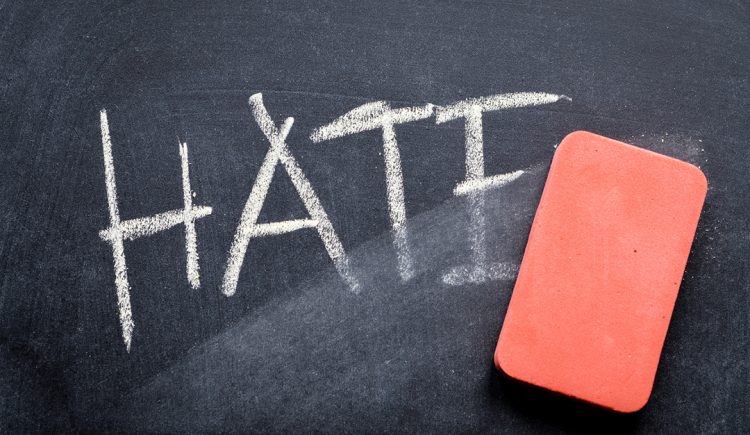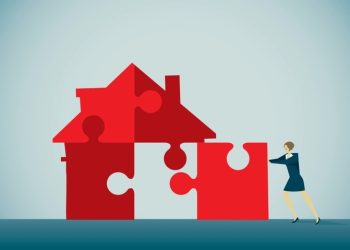Hate crimes against Asian Americans are on the rise, prompting admonishment from the highest level of our country’s leadership. President Joe Biden, during a March 11 prime time address from the White House, called these actions “un-American,” saying they must stop.
As I write this article, eight women were killed in Atlanta just yesterday, March 17. Six of the eight were Asian-American. Preliminary details point to a shooter that targets Asian-owned businesses. Our community is living in fear and we must put an end to this.
Indeed, the activist group Stop AAPI Hate, has tallied thousands of racist incidents against Asian-Americans since the start of coronavirus pandemic. The FBI and DOJ report similar data that show an increase in hate crimes against our community.
Spurred on by the belief that China is responsible for the global health crisis, people have been lashing out at anyone appearing to be Asian. Herein lies an unfortunate truth: Many people are not able to differentiate among different Asian Americans living in our country. These include people from China, Japan, Korean, the Philippines and Taiwan, as well as Vietnam, Cambodia, Laos, Burma and Samoa. While Asian Americans also include people from South Asian countries such as India, Pakistan, Bangladesh and Nepal, recent hate crimes have been directed primarily at people from East Asia and Southeast Asia.
According to the American Psychological Association, perpetrators of hate crimes may not be driven by hate. They may in fact be motivated by fear, anger or ignorance. Understanding the importance of education when it comes to racial bias and discrimination, the Asian Real Estate Association (AREAA) is hosting its first ever Diversity and Fair Housing Summit, a virtual event taking place April 28 – 29, 2021. AREAA typically hosts its luxury summit in the spring, but today’s environment offered an opportunity to be more relevant to current events and to align more closely with our mission to increase homeownership within the AAPI community. After all, all of us, including Asian Americans, should be able to live where we want without having to fear our sense of security and well-being.
Make no mistake, hate crimes are the tip of the iceberg when it comes to discrimination, and represent the most extreme form of bias in action. That doesn’t mean that more subtle forms aren’t negatively affecting members of the AAPI community by creating barriers to homeownership.
At the highest level, the Diversity and Fair Housing Summit is about building empathy. Our keynote speaker, acclaimed journalist and MSNBC/NBC anchor Richard Lui, will draw heavily on his new book “Enough About Me,” which chronicles his experience caring for his father with Alzheimer’s, to share his own experiences in building empathy.
The first day of the event will be devoted to understanding the many different areas in which people can be biased—in the Asian American community and beyond, making this event relevant for anyone working in real estate.
– A session on light privilege will explore the privileges that exist for light-skinned people in Asia, Africa and South America.
– Religion is another area that will be explored as it relates to bias in America.
– Understanding people’s pronouns is becoming more common and a session called “They/Them/Theirs” will explore implications of pronoun use, not just in working with clients, but also in broader social interactions.
– For many people, the terms “married” or “single” don’t necessarily apply. “It’s Complicated” explores the nuances as they relate to homeownership.
– People-first language is an important component when working with people who have disabilities. Learning how important words are is critical to unbiased communication.
The second day of the summit draws on material from the first day as attendees have the opportunity to take a training course on implicit bias, learning valuable tools for self-examination and achieving a better understanding of our bias blind spots. Implicit bias relates to unconscious attitudes or stereotypes that arise from our brain’s tendency to rely on patterns to create shortcuts to thinking. Uncovering these biases is the first step in removing them, which makes this training particularly powerful as we endeavor to make a difference.
AREAA’s co-founder John Wong, who is heavily involved with the National Association of REALTORS® and the California Association of REALTORS® recently took this implicit bias training through a C.A.R. event. He was so impressed that he wasted no time in making it available to AREAA members and non-members alike.
Following the training session, we will talk with leaders in other industries who are taking action against bias and discrimination including Eric Toda, CMO at Facebook and Minjae Ormes, CMO at Visible.
The breakout sessions that follow will take inspiration from these leaders and provide concrete ways to take action in combatting bias and discrimination. From getting involved in lobbying for legislation changes, to understanding how and when to report fair housing infractions, to tapping into additional education resources to support diversity in our industry and beyond, taking action takes many forms.
AREAA’s Diversity and Fair Housing Summit is an opportunity for anyone working in the field to expand their knowledge and make a crucial difference in our society. And you don’t need to be a member of AREAA to attend.
To register for AREAA’s Diversity and Fair Housing Summit, click here.
Early bird rates end March 31.
Founded in 2003, the Asian American Real Estate Association of America (AREAA) is a national nonprofit trade organization dedicated to improving the lives of the Asian American and Pacific Islander (AAPI) community through homeownership.











